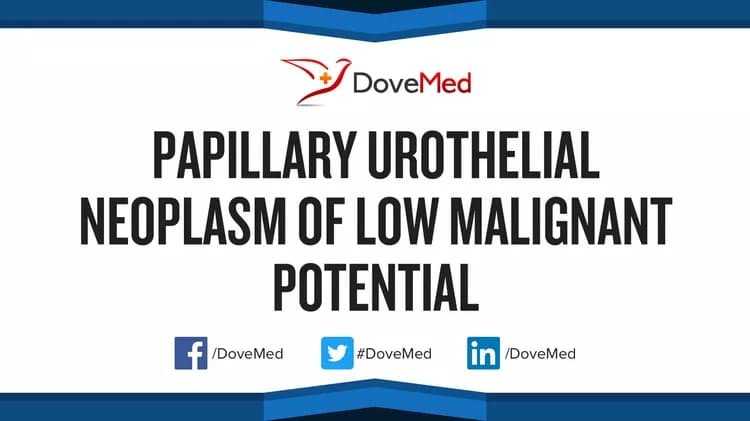
Papillary Urothelial Neoplasm of Low Malignant Potential
What are the other Names for this Condition? (Also known as/Synonyms)
- Low Malignant Potential Papillary Urothelial Neoplasm
- Papillary Transitional Cell Neoplasm of Low Malignant Potential
- PUNLMP (Papillary Urothelial Neoplasm of Low Malignant Potential)
What is Papillary Urothelial Neoplasm of Low Malignant Potential? (Definition/Background Information)
- Papillary Urothelial Neoplasm of Low Malignant Potential (PUNLMP) is a subtype of noninvasive urothelial neoplasm. It may be described as a premalignant lesion involving the genitourinary (GU) tract that includes the renal pelvis, ureters, urinary bladder, and urethra. The tumor predominantly occurs in the urinary bladder
- Papillary Urothelial Neoplasm of Low Malignant Potential is diagnosed under a microscope, on examination of the cancer cells by a pathologist. By definition, the chances of PUNLMP developing into a urothelial cancer is low. The classification of the tumor is important, as it may dictate the type of treatments to be provided and the overall outcomes
- The exact cause of Papillary Urothelial Neoplasm of Low Malignant Potential is presently unknown. It is believed that the cause (in older adults) may be similar to those causing bladder cancers. Some tumor specimens have shown TERT promoter gene and FGFR3 gene mutations
- PUNLMP is mostly noted in individuals between ages 50 and 70 years, and a vast majority of the affected individuals are males. Young adults and children are also known to be affected; some studies report that PUNLMP may constitute between 40-50% of the urothelial tumors
- The signs and symptoms of Papillary Urothelial Neoplasm of Low Malignant Potential usually include blood in urine (hematuria) and other urinary tract symptoms; most tumors are small in size and solitary in nature. The neoplasm is associated with low invasion and low metastatic potential. Tumor recurrence risk is increased with TERT promoter gene mutation and in individuals with multiple tumors
- The treatment may include surgery (complete tumor resection) based on the healthcare provider’s assessment. Individuals with Papillary Urothelial Neoplasm of Low Malignant Potential typically have a good prognosis with total excision of the tumor. Due to recurrence risk, regular follow-ups are essential
Related Articles
Test Your Knowledge
Asked by users
Related Centers
Related Specialties
Related Physicians
Related Procedures
Related Resources
Join DoveHubs
and connect with fellow professionals

0 Comments
Please log in to post a comment.